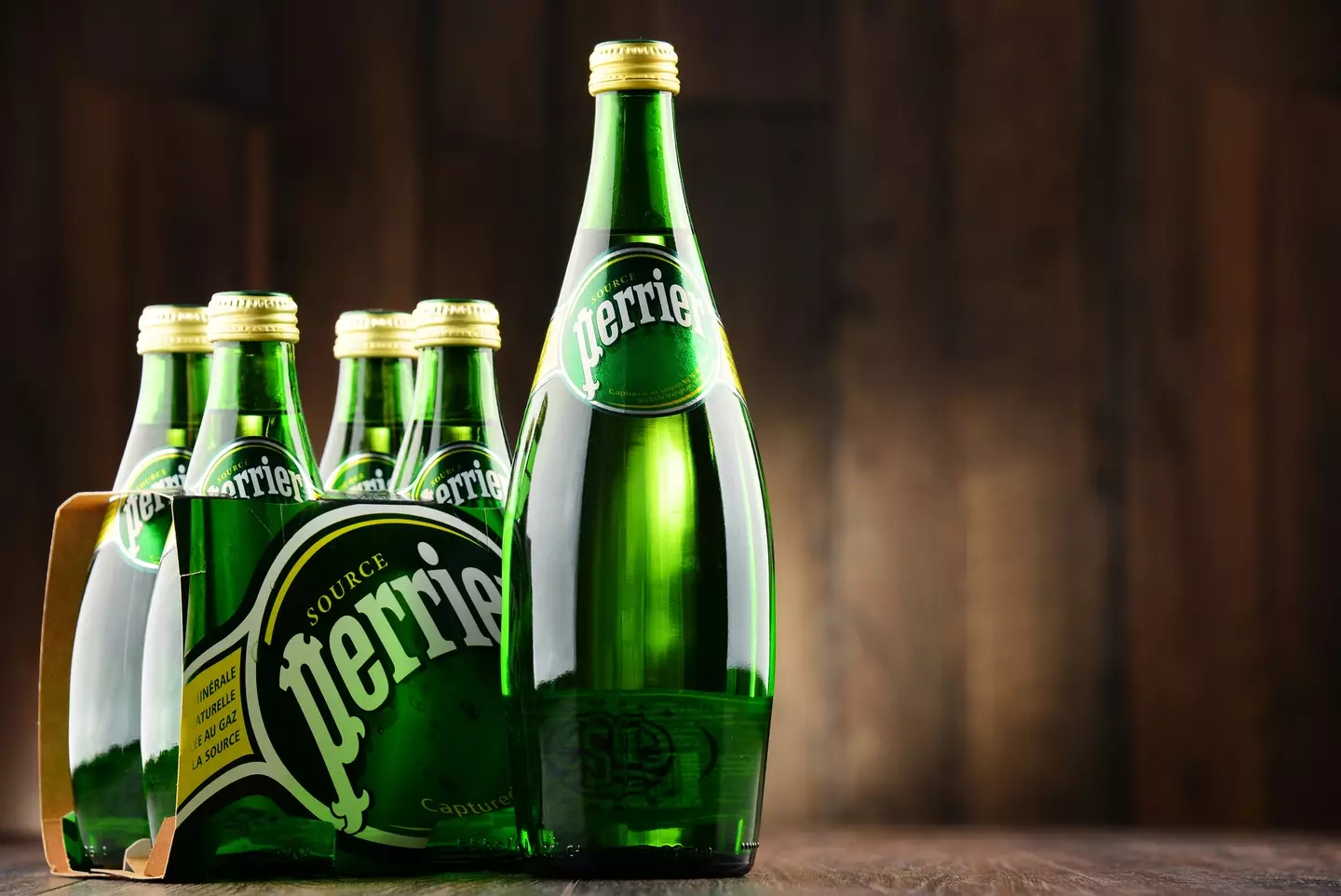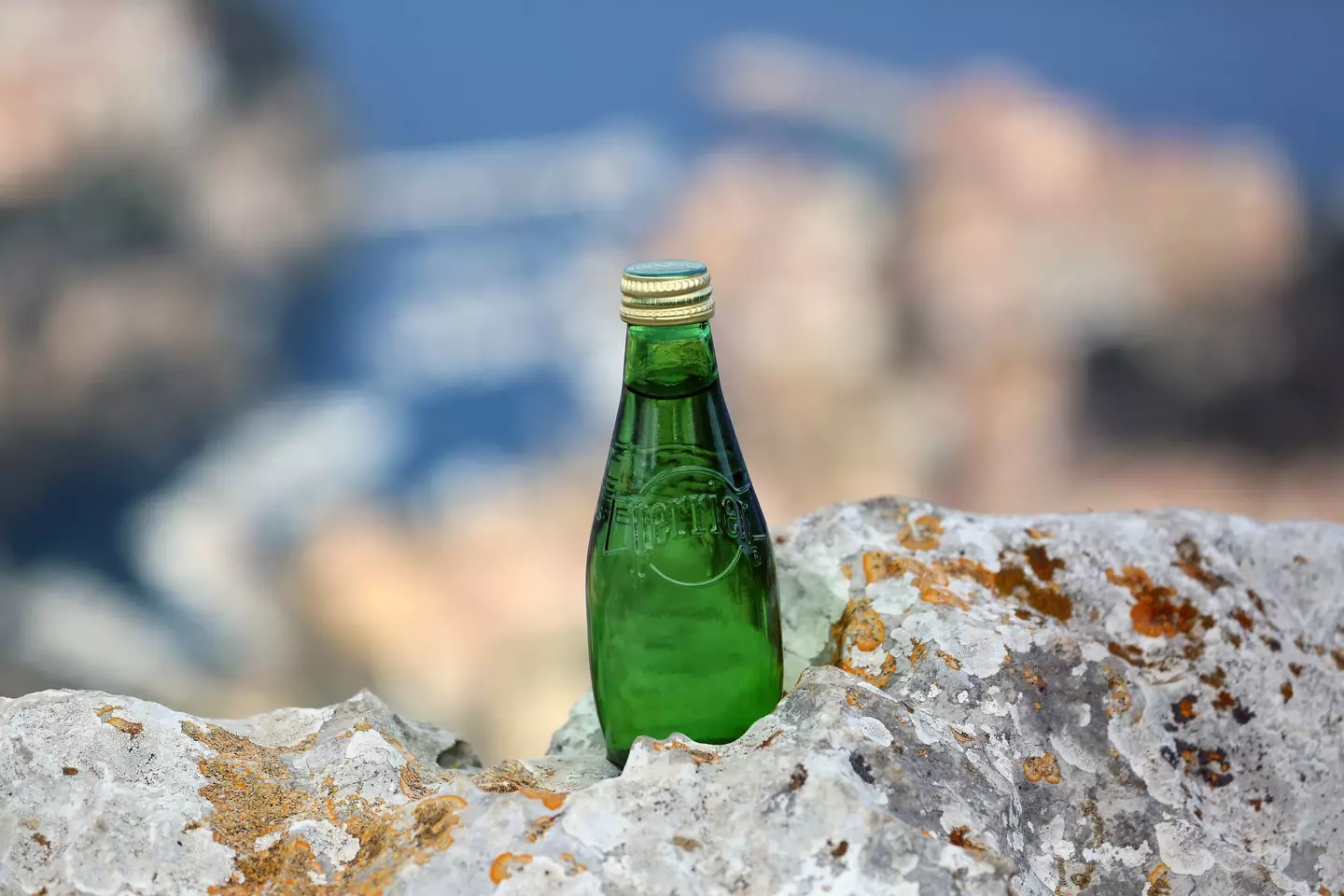
Sparkling water is usually seen as the safer, trendier alternative to fizzy soft drinks, being both crispy and refreshing. Brands like Perrier have built an image of being the premium choice for people looking for something a little more sophisticated than tap water. But now, one of France’s most iconic drinks has found itself in the middle of a bubbling row that could end up pulling it from supermarket shelves.
Owned by Nestlé Waters, Perrier is sourced from springs in the south of France and has long been marketed as a natural mineral water. That ‘natural’ label has helped the brand stand out enough over the years to make it a staple at restaurants, bars, and dinner tables worldwide.
However, behind the green glass bottles and slick advertising campaigns, serious questions are being asked about what’s really in the water.

Advert
An influential consumer group in France, UFC-Que Choisir, has now stepped in with demands that could shake Perrier’s reputation to its core. The association has asked a court in Nanterre, near Paris, to temporarily ban the sale of Perrier, claiming that the drink is being sold under false pretences.
According to their lawyer, Alexis Macchetto, ‘consumers buy water that is sold as natural mineral water, but it isn’t natural because it has been treated’.
Reports in early 2024 revealed that Nestlé Waters had used banned methods to treat its mineral waters, including ultraviolet treatment and activated carbon filters. Both are processes that French and European laws say cannot be used on products labelled as natural mineral water.
Nestlé defended its actions, telling AFP that it had always ‘operated under official control’, but UFC argues otherwise, warning that ‘If nothing is done, somebody could fall ill’.
What’s more, those concerns have taken an even darker turn. That’s because, on several occasions, contamination by bacteria from faecal matter has been detected in the wells supplying Perrier, especially after periods of heavy rainfall.
Nestlé claims such incidents are rare and insists it no longer uses the affected wells. But UFC points to the company’s recent decision to replace 0.2 micrometre filters with 0.45 micrometre ones as another sign that consumer safety is at risk, saying the change makes filtering ‘obviously less efficient’.

This isn’t the first time Nestlé Waters has been caught out. In 2024, the company admitted to using banned treatments on its mineral waters and paid a €2 million fine to avoid prosecution over illegal filtering.
More recently, it was hit with another penalty of over $610,000 in Switzerland for similar issues with its Henniez bottled water. Adding fuel to the fire, a French Senate investigation earlier this year alleged that President Emmanuel Macron’s office ‘had known, at least since 2022, that Nestlé had been cheating for years’.
With a consumer group calling for sales to be stopped and previous fines already on record, Perrier is now facing a scandal that could leave its once sparkling reputation falling flat.
